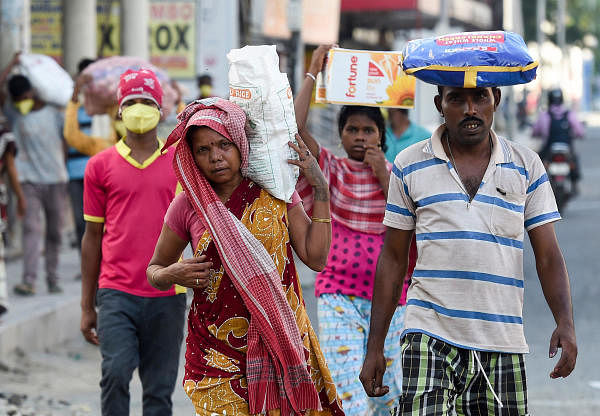
The median age of an Indian is about 28 years and this ‘demographic dividend’ is often exuberantly celebrated. The recent COVID-19 crisis shows that advantages come with their own baggage. If there is one danger that the crisis has highlighted it is the fact that India is staring at a massive loss of institutional memory, which in turn, seems to be reflected in the manner in which we responded to the crisis.
The huge generational shift over the past decade means that experienced decision-makers, business leaders and even politicians of yesteryears have gradually either retired, faded away or have withdrawn from public life. That has left most of India’s institutions with a new generation of leaders or heads who either started their career in the mid-1980s or even the post-1991 reform period.
Before the outbreak of this pandemic, India’s policymakers, from top politicians to senior bureaucrats to the officers of the armed forces, as well as the lowest-level clerks in neighbourhood government offices, would have rarely, if at all, faced an existential crisis on such a gigantic scale. There may be the rare exception. Most of the crises that we have faced in the past three decades were mostly localised: Natural disasters, riots and the outbreak of plague in Surat. This is reflected in the chaos in the aftermath of the lockdown announcement.
Contrast this with the problems that India faced from the 1940s till the Emergency: World War, end of colonial rule, Partition, three wars after Independence, riots, cholera outbreaks, severe famines and food crises, apart from ravages caused by natural disasters, poverty, and need to build the Indian nation. Each of these crises/issues invariably concerned or enveloped large swathes of India’s population or regions. Partition led to a displacement of about 14 million and death of at least 2 lakh to 20 lakh people at a time when the population was about 314 million; Cholera outbreaks existed till at least the 1960s. Vivid memories of these are still etched in the memory of elderly persons.
The generation of policymakers and military officers who served the country in various capacities till the 1970s either had directly grappled with these issues first hand or had trained or mentored those who joined their ranks in the 1950s and 1960s thereby passing on their knowledge on a personal or institutional basis to each of the successive recruited batches. This personal and institutional memory coupled with experience was handy even for those policymakers appointed in the 1970s since they could often blend the institutional knowledge with their own field experiences.
The generational shift of the past couple of years and the retirement of the older generation of policymakers and officials coupled with the sea change in the nature of the state in the aftermath of 1991 reforms means that most of the institutions are manned by personnel who joined service after 1991 while the senior-most may have joined service in the mid-1980s thereby leaving a possible dearth in practical experience as well as a vacuum in theoretical and conceptual framework necessary to deal with any existential crisis. The impact of this is most glaring in the bureaucracy and armed forces – two most important parts of the Indian system. Demographic reasons mean that even the senior-most officers in the Armed forces do not have practical experience of fighting a generalised conventional war.
There is no doubt generational shift is inevitable in any society and unless it is properly managed, the problems it unleashes far outweigh the benefits, especially in a complex society such as that in India. We should only hope that internally our institutions have already made sufficient efforts to store and disseminate their own institutional histories, even if it is within closed doors because any inability to do so will mean that India has to pay a very heavy long-term price. In case they do not have systems and processes to do so, this crisis is probably the best time for them to start the process of such compilation and reconstruction before it is too late.
(S Ananth is an independent researcher based in Andhra Pradesh. Views expressed are personal)
The views expressed above are the author’s own. They do not necessarily reflect the views of DH.